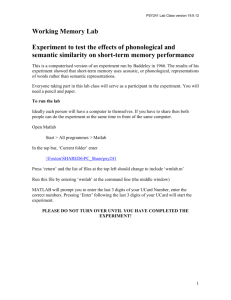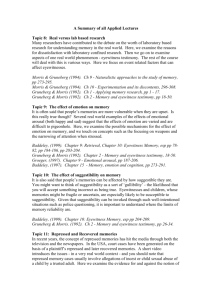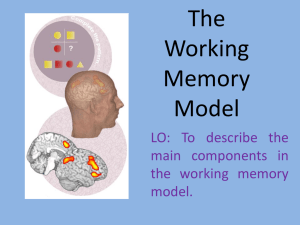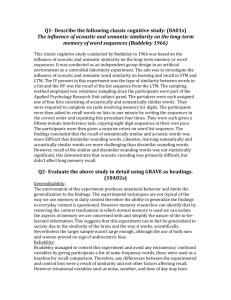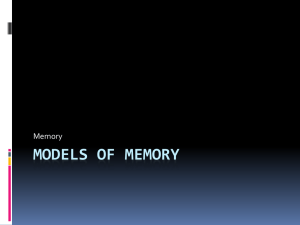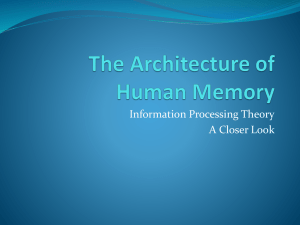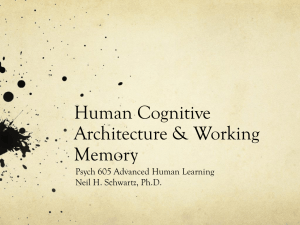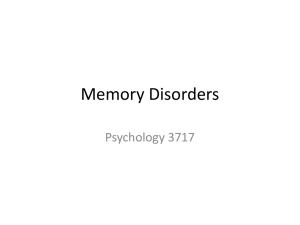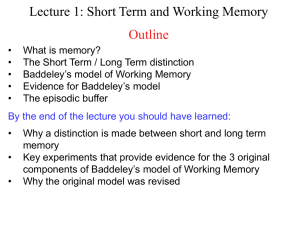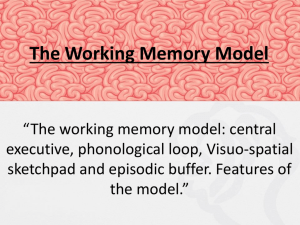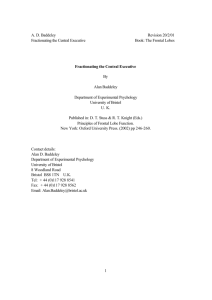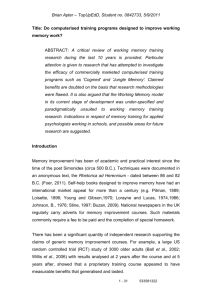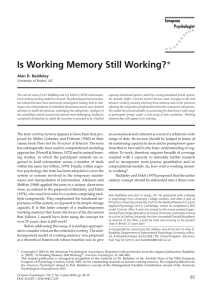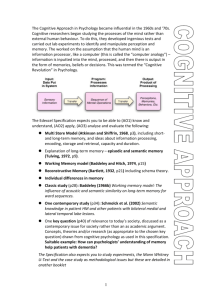A Summary of all Theoretical Lectures
advertisement
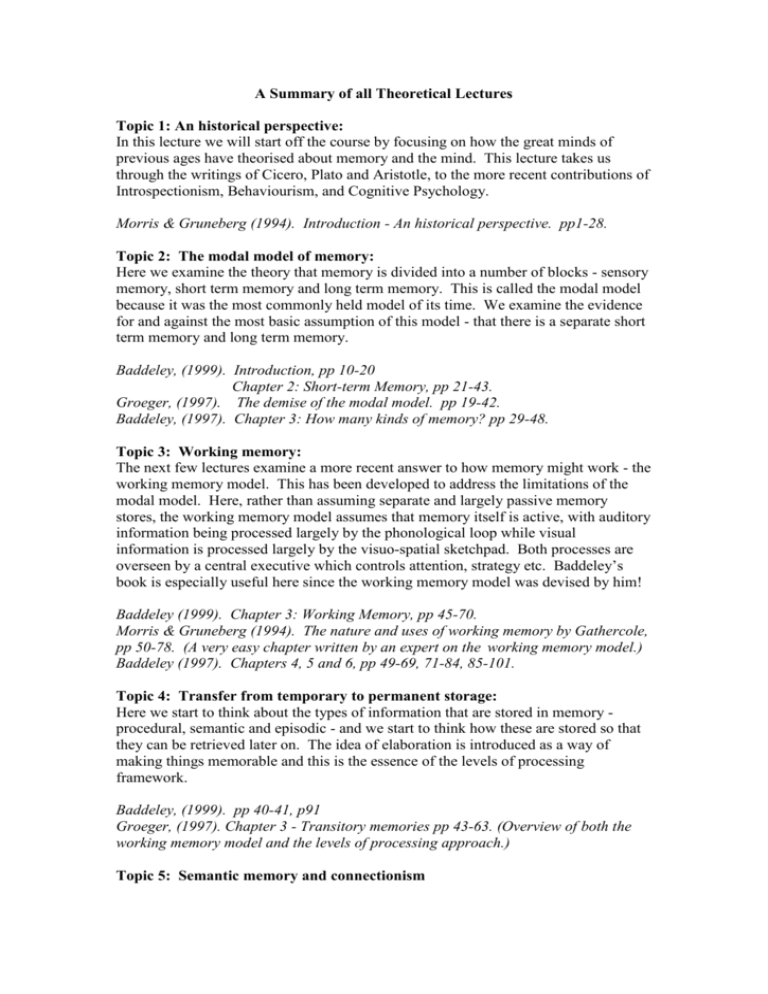
A Summary of all Theoretical Lectures Topic 1: An historical perspective: In this lecture we will start off the course by focusing on how the great minds of previous ages have theorised about memory and the mind. This lecture takes us through the writings of Cicero, Plato and Aristotle, to the more recent contributions of Introspectionism, Behaviourism, and Cognitive Psychology. Morris & Gruneberg (1994). Introduction - An historical perspective. pp1-28. Topic 2: The modal model of memory: Here we examine the theory that memory is divided into a number of blocks - sensory memory, short term memory and long term memory. This is called the modal model because it was the most commonly held model of its time. We examine the evidence for and against the most basic assumption of this model - that there is a separate short term memory and long term memory. Baddeley, (1999). Introduction, pp 10-20 Chapter 2: Short-term Memory, pp 21-43. Groeger, (1997). The demise of the modal model. pp 19-42. Baddeley, (1997). Chapter 3: How many kinds of memory? pp 29-48. Topic 3: Working memory: The next few lectures examine a more recent answer to how memory might work - the working memory model. This has been developed to address the limitations of the modal model. Here, rather than assuming separate and largely passive memory stores, the working memory model assumes that memory itself is active, with auditory information being processed largely by the phonological loop while visual information is processed largely by the visuo-spatial sketchpad. Both processes are overseen by a central executive which controls attention, strategy etc. Baddeley’s book is especially useful here since the working memory model was devised by him! Baddeley (1999). Chapter 3: Working Memory, pp 45-70. Morris & Gruneberg (1994). The nature and uses of working memory by Gathercole, pp 50-78. (A very easy chapter written by an expert on the working memory model.) Baddeley (1997). Chapters 4, 5 and 6, pp 49-69, 71-84, 85-101. Topic 4: Transfer from temporary to permanent storage: Here we start to think about the types of information that are stored in memory procedural, semantic and episodic - and we start to think how these are stored so that they can be retrieved later on. The idea of elaboration is introduced as a way of making things memorable and this is the essence of the levels of processing framework. Baddeley, (1999). pp 40-41, p91 Groeger, (1997). Chapter 3 - Transitory memories pp 43-63. (Overview of both the working memory model and the levels of processing approach.) Topic 5: Semantic memory and connectionism Semantic memory refers to the things we ‘know’ rather than the things we can do or the events we remember. Modern theories of how knowledge is stored suggest and information is connected to other bits of information in the form of a hierarchy of concepts. Modern computer modelling techniques - connectionist techniques - use this idea and we will explore how plausible this is as a model of human memory. Baddeley, (1999). Chapter 8: Storing Knowledge. Chapter 9: Retrieval, pp 191-196. Groeger, (1997), Chapter 4 - Enduring memories pp 65-87. Morris & Gruneberg (1994). Ch 2 - Theories of semantic memory, pp 40-43 Ch 7 - Connectionism and memory, pp 196-237. Baddeley, (1997). Ch 14, Connectionism, pp 233-240, 257-272. Topic 6: Episodic memory and schema Episodic memory refers to the things we remember doing - i.e., having breakfast this morning. It is stored in a slightly different way to semantic memory but still in a way that emphasises connections between pieces of information. One of the dominant views for how episodic memory is stored is the schema theory, and the notion of effort after meaning is examined. Baddeley, (1999). Chapter 5: Organising and Remembering, esp pp 95-98. Chapter 8: Storing Knowledge, esp pp 152-155. Morris & Gruneberg, (1994)., pp 41-42, 70-71, 98-101. Groeger, (1997). Enduring memories, pp 80-85. Baddeley, (1997). Chapter 13, Knowledge, pp 240-250. Topic 7: Solving Problems and Making Decisions Given all we know about memory, there comes the question of how we solve problems or make decisions about things. In essence, this comes down to a ‘metamemory’ question – how do we know what we know? This lecture examines work which addresses the various retrieval states and so informs us as to whether our memories are serving us well or whether we should withhold a memory if we are not quite sure. Issues of knowledge and expertise factor in to help and sometimes hinder our decision-making abilities. Baddeley, (1997). Chapter 9, Retrieval, pp 169-197. See Also: Ashcraft, M.H. (1998) Fundamentals of Cognition, Chapters 11 and 12, pp 349-420.
